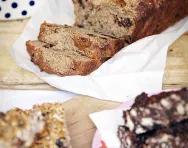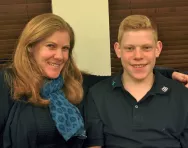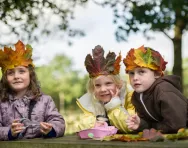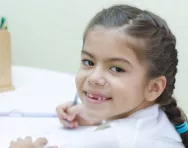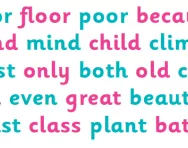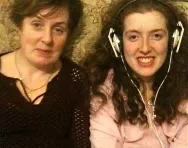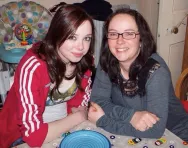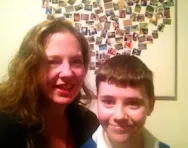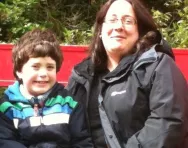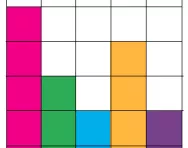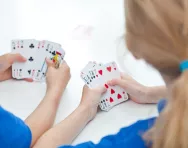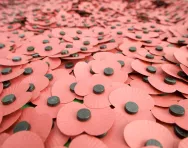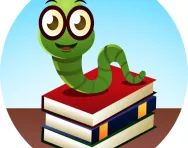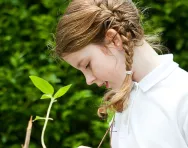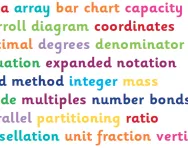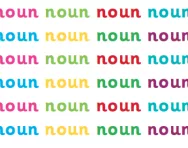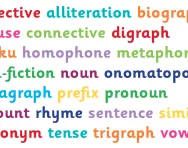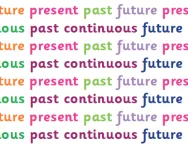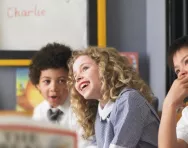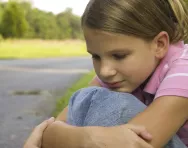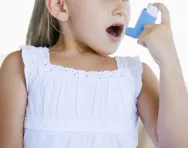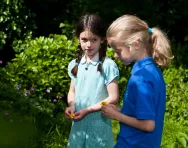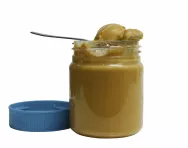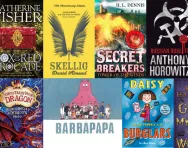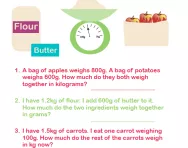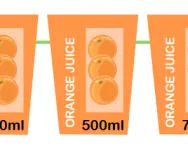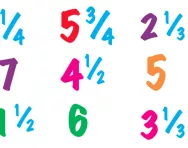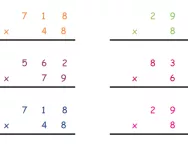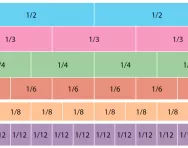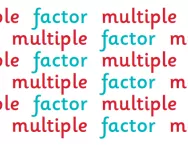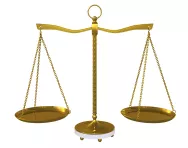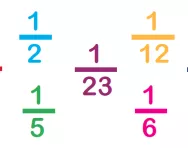7 easy energy-boosting after-school snacks
After school the first words to come out of most children's mouths are "What have you brought me to eat?". Sort out the hunger pangs, energy slumps and general moodiness with some healthy but delicious snacks as suggested by Kate Percy, author of Go Faster Food for Kids and mum of three.
'He struggled to form his letters correctly and his handwriting was illegible'
Cécile Watson, from Bromley in Kent, describes her experience of the SEN and school system with her son Jean-Pierre, 11, who has dysgraphia, and shares her tips for other parents.
"He had problems counting up in twos, fives and even tens"
Lillian Blundell, from Bath, describes her experience of the SEN and school system with her son Robbie, 16, who has dyscalculia, and shares her tips for other parents.
6 learning activities for spring weather
Welcome the new season with these spring children's activity ideas from Juno Hollyhock from Learning through Landscapes. Wellies on, gloves off, coats fastened – time to run out into the spring sunshine!
11 easy tips to make Shakespeare fun for kids
You don't have to be a theatre buff or a classic-literature lover to appreciate Shakespeare's wonderful stories, compelling characters and beautiful language. We say it's never too early to introduce children to the Bard, so here are 11 great ways to help under-12s fall in love with his verses.
Primary school coding explained for parents
Computer code classes, part of the 2014 primary curriculum, aim to teach kids not to be simply users of technology, but creators of it too. Kate Yelland explains what parents need to know.
Coping strategies to help autistic children
Schools can be complicated places for children, teachers and parents. Autism practitioner Gina Davies explains that there will invariably be challenges when autistic children start and attend school, but strategies that enable parents and teachers to work in partnership can be very successful.
What are exception words?
As your child learns to read you might hear them talk about the 'exception words' they are learning. We explain what exception words are, what role they play in phonics learning and how you can support your child's developing reading and spelling skills at home.
"She has had to work two or three times harder than her peers"
Helen Barylo from Coventry describes her experience of the SEN and school system with her son Aurora, 16, who is dyslexic, and shares her tips for other parents.
"She would never rest or stop talking"
Teresa Catto-Smith from Perth, Scotland, describes her experience of the SEN and school system with her daughter Leanne, 19, who has ADHD (Attention Deficit Hyperactivity Disorder), and shares her tips for other parents.
"We'll work together to develop his organising and planning skills"
Susie McCrae from Edinburgh describes her experience of the SEN and school system with her son David, 9, who has Developmental Coordination Disorder / dyspraxia, and shares her tips for other parents.
'The school worked with him to strengthen his motor and social skills'
Jane Burbridge from Folkestone describes her experience of the SEN and school system with her son Andrew, 7, who has Autism Spectrum Disorder (ASD), and shares her tips for other parents.
What is a block graph?
Block graphs are the first step in data handling and your KS1 child will learn to draw them, read them and use them to record information. We explain what you need to know about block diagrams and how they're used in the classroom.
Team mates not required
Many children are turned off by team sports. However, there are plenty of fun alternatives for kids who reject rugby or couldn’t care less about cricket, says Andrew Shields.
10 ways playing cards helps children with maths
Fancy a quick game of cards? Studies show cognitive benefits to play and card games teach children new strategies for using mathematical information, categorising patterns, sequencing and sorting. Last but not least, this is numeracy practice the whole family will enjoy (though things might get a bit competitive... beware!). Kate Yelland asked maths teachers and experts why sitting down with a pack of cards and a primary-school child is definitely playing your cards right.
10 ways to remember the First World War with your child
Bake a trench cake, plant poppies, find a local hero and investigate how your own family experienced the Great War with our family-friendly remembrance activities to commemorate the centenary of the start of WWI.
Brilliant costumes to buy for World Book Day
No time to put a World Book Day costume together? Buy one of these fantastic, budget-fitting outfits that your child will want to wear again after World Book Day for fancy dress parties, Halloween or just playing at home.
Growing to achieve at school
Gardening is part of the National Curriculum framework, so it's vital children understand plants. They'll cover the science in the classroom, but we suggest some fun ways to see the theory in action and get them growing (no garden or green fingers required!).
Primary numeracy glossary for parents
From area to word problems, TheSchoolRun's primary-school numeracy glossary offers a complete guide to all the maths concepts children are taught in EYFS, KS1 and KS2. Brush up on your own mathematical skills, clear up homework confusion and understand exactly what your child is learning at school by reading our basic definitions (with links to more detailed explanations, teachers' tips and examples).
What is a noun?
Get common nouns and concrete nouns clear in your mind and understand proper nouns and pronouns - our simple guide explains everything primary-school parents need to know about nouns and how to form the plural forms correctly.
Primary literacy glossary for parents
From adjectives to writing frames, TheSchoolRun's primary-school literacy glossary offers a complete guide to all the concepts children are taught in EYFS, KS1 and KS2 English. Brush up on your own literacy skills, clear up homework confusion and understand exactly what your child is learning at school by reading our basic definitions (with links to more detailed explanations, teachers' tips and examples).
What is verb tense?
Verb tenses tell us when an action took place in the present, past or future. Help your child understand the main verb tenses (simple present and present continuous, simple past and past continuous, simple future and future continuous) and understand which tenses are used in different kinds of texts.
How to choose the right sports club for your child
Only one three-letter word matters when looking for a great sports club for your child. No, not ‘win’, but ‘fun’. Andrew Shields explains.
Blending sounds: teachers' tips
Struggling to help your child 'blend' sounds when they're reading aloud? Primary teacher Phoebe Doyle offers tips to help you support their phonics learning and early reading at home.
Managing separation and divorce at school
Separation isn’t just a family affair – the consequences need to be managed at school, too. Moira Holden explains the legalities involved and experts give advice on how to deal with your child’s education as a separated family.
Managing asthma in primary school
Managing asthma at school can be a challenge, but new legislation will ensure that children with long-term health needs receive extra support. Jo Willacy reports.
The parents’ guide to developmental language disorder
A significant percentage of children are thought to be affected by DLD, but it often goes unrecognised. We look at how to spot the signs and help your child.
Sex and relationships: how to talk to your primary-school child
How should you discuss the birds and the bees with your child and when, and what can you expect your school to provide in terms of sex and relationships education? We asked the experts for their guidance for the primary-school years.
Dealing with anaphylaxis in schools
If your child suffers from a severe food allergy, sending them to school every day can be a daily battle of trust. Jo Willacy takes a look at policy, action plans and training for parents and school staff to help tackle allergy management concerns.
Managing diabetes at school
If your child has diabetes, which is a condition when the body doesn’t produce enough insulin, you want to know that they’ll be as healthy and safe as possible at school. We share tips about drawing up a care plan, communicating effectively with school and raising awareness of diabetes with teachers and carers.
14 of the best new books for children for Christmas 2013
Start a new tradition of reading in front of the tree on the evening of 25 December with these brilliant new books for 4-11 year olds. From thrillers to Dr Who adventures, picture books to hide-under-the-covers scare stories, they'll transport your child around the globe and back and forwards in time so effectively that all the new screens and interactive games will be forgotten. Happy reading!
What is a word problem?
We explain what a word problem is and give examples of the types of word problems your child might be challenged with in each primary-school maths year group, from Year 1 to Year 6.
What is capacity?
We explain what capacity means and how children are taught to understand the concept in KS1 and learn about the relationship between millilitres and litres, and in KS2 use decimal notation to record the capacity of water and convert between units of measurement.
What are improper fractions and mixed numbers?
We explain what improper fractions and mixed numbers are and how the relationship between them can be taught to primary-school children.
What is long multiplication?
We explain what the long multiplication method is and review how multiplication skills are built up through each year of primary school.
What are equivalent fractions and simplifying fractions?
We explain what equivalent fractions are, how the concept of equivalence is introduced in primary school maths and how knowledge of equivalent fractions is then used to simplify fractions.
What are multiples and factors?
We explain what multiples and factors are and how children are taught to recognise multiples from Year 1 and factors from Year 5, with examples of the types of problem they might be asked to solve.
What are standard and non-standard units?
We explain what standard and non-standard units are and how non-standard units can help children understand the concept of weight before they master the skill of accurate measurement and converting units of measurement
What are unit fractions?
We explain what unit fractions are and why children need to understand the concept of unit fractions before moving onto more advanced fractions learning.
What are tessellating shapes?
We explain what tessellating shapes are and why tessellation may be taught in primary school as part of learning about 2D shapes.
